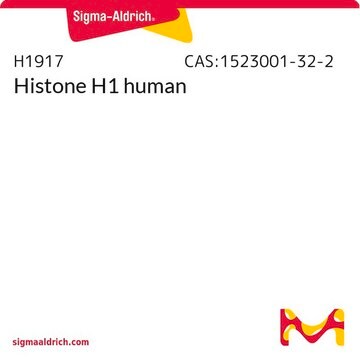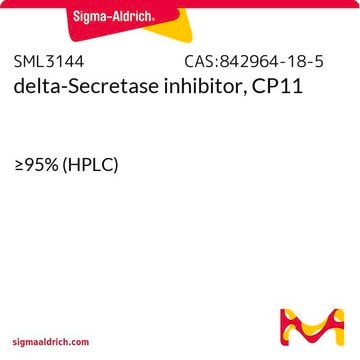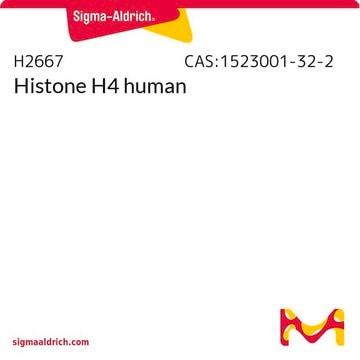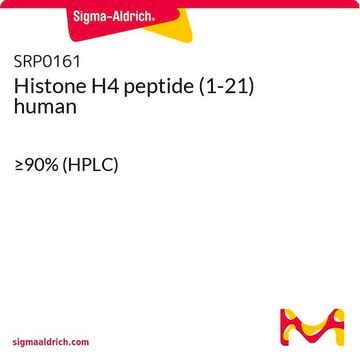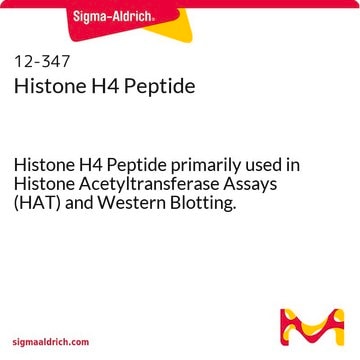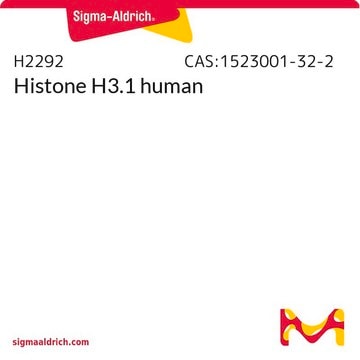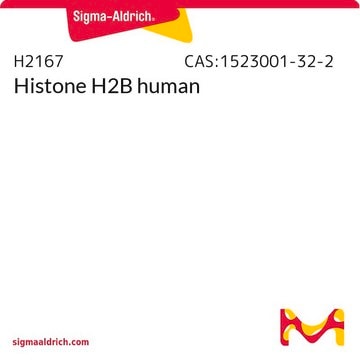SRP0407
Histone H2b full length human
recombinant, expressed in E. coli, ≥65% (SDS-PAGE)
Synonym(s):
H2BFA, histone cluster 1, H2bg
Sign Into View Organizational & Contract Pricing
All Photos(1)
About This Item
UNSPSC Code:
12352200
NACRES:
NA.77
Recommended Products
biological source
human
recombinant
expressed in E. coli
Assay
≥65% (SDS-PAGE)
form
aqueous solution
mol wt
14.6 kDa
packaging
pkg of 1 mg
NCBI accession no.
UniProt accession no.
shipped in
dry ice
storage temp.
−70°C
Gene Information
human ... HIST1H2BG(8339)
Storage Class Code
12 - Non Combustible Liquids
WGK
WGK 1
Flash Point(F)
Not applicable
Flash Point(C)
Not applicable
Certificates of Analysis (COA)
Search for Certificates of Analysis (COA) by entering the products Lot/Batch Number. Lot and Batch Numbers can be found on a product’s label following the words ‘Lot’ or ‘Batch’.
Already Own This Product?
Find documentation for the products that you have recently purchased in the Document Library.
Abba Kastin
Handbook of Biologically Active Peptides (2013)
Histone H2B ubiquitylation and deubiquitylation in genomic regulation.
N C T Emre et al.
Cold Spring Harbor symposia on quantitative biology, 69, 289-299 (2005-08-25)
A Comprehensive View of the Epigenetic Landscape Part I: DNA Methylation, Passive and Active DNA Demethylation Pathways and Histone Variants
Anna Sadakierska-Chudy
Neurotoxicity Research, 27 (2015)
John J Wyrick et al.
Biochimica et biophysica acta, 1789(1), 37-44 (2008-08-05)
In eukaryotic cells, the genome is packaged with histones H2A, H2B, H3, and H4 to form nucleosomes. Each of the histone proteins is extensively post-translationally modified, particularly in the flexible N-terminal histone tail domains. Curiously, while post-translational modifications in histone
Mary Ann Osley
Briefings in functional genomics & proteomics, 5(3), 179-189 (2006-06-15)
Histone ubiquitylation has emerged as an important chromatin modification with roles in transcription and trans-histone methylation. In the past several years, there has been dramatic progress in the identification of factors that control ubiquitin attachment to the core histones H2A
Our team of scientists has experience in all areas of research including Life Science, Material Science, Chemical Synthesis, Chromatography, Analytical and many others.
Contact Technical Service
